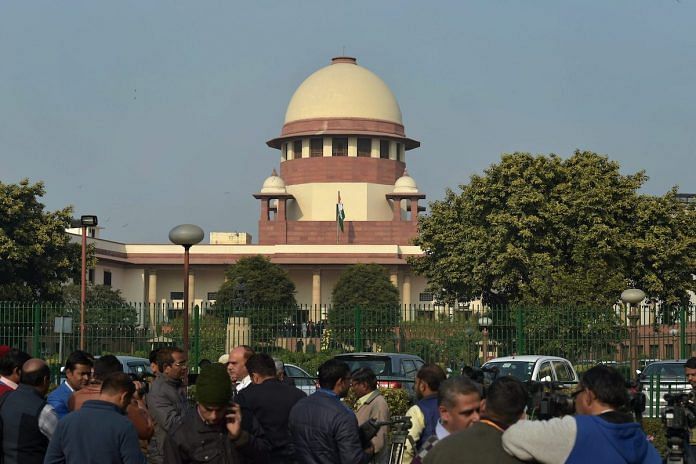Supreme Court will decide if Aadhaar is a breach of one’s right to privacy, and if the govt can make it compulsory for benefits & services.
New Delhi: The Supreme Court will deliver its verdict on the constitutional validity of Aadhaar Wednesday.
The landmark verdict will decide questions such as if Aadhaar breaches one’s fundamental right to privacy, and if the government is right in making it compulsory for availing benefits and services.
The judgment will come almost six years after the first plea against the unique identification system was filed by retired high court judge K.S. Puttaswamy.
Also read: God, please save India from our ‘wine ‘n cheese’ Aadhaarophobics
A five-judge bench, comprising Chief Justice of India Dipak Misra along with justices A.K. Sikri, A.M. Khanwilkar, D.Y. Chandrachud and Ashok Bhushan, began hearing the matter on 17 January, and concluded almost four months later on 10 May. The arguments took place over 38 days.
While concluding his arguments, Attorney General K.K. Venugopal — who was representing the Narendra Modi government — observed that this was the second longest oral hearing in the apex court’s history. The longest was in the landmark Kesavananda Bharati case in 1973, where the top court had outlined the basic structure of the Constitution and ruled that one could not tamper with it.
A battery of senior advocates made compelling arguments in the case — illustrious names like Gopal Subramanium, Shyam Divan, Kapil Sibal, P. Chidambaram, Arvind Datar, K.V. Vishvanathan, P.V. Surendranath, Rakesh Dwivedi and Meenakshi Arora were among those who appeared.
The two sides of the argument
In the course of the arguments, the government defended its move to make Aadhaar compulsory for a host of benefits and services in the name of welfare measures. Aadhaar had also become mandatory for bank accounts, PAN cards, mobile phone services, passport and driving licence.
Also, the government submitted that Aadhaar would ensure targeted delivery to the proper beneficiaries, which would benefit millions and prevent the siphoning off of funds.
The petitioners, however, alleged that Aadhaar was a breach of one’s fundamental right to privacy. They argued that the mammoth database of fingerprints and iris scans was liable to data breach that would compromise security.
Also read: Aadhaar card must for Modicare, but with a small exemption
Court’s concerns
The top court’s primary concern lay over the alleged breach to one’s privacy. In August 2017, the court had declared privacy a fundamental right — a question which had often popped up during the Aadhaar hearings. The apex court had also expressed its apprehension over the debate triggered by the controversy over data leakage, and the alleged and illegal use of Facebook data in the US elections.
“The real apprehension is the data available can influence the electoral outcome of a country… whether democracy can survive if Aadhaar data is used to influence the electoral outcome,” Chandrachud had said.



